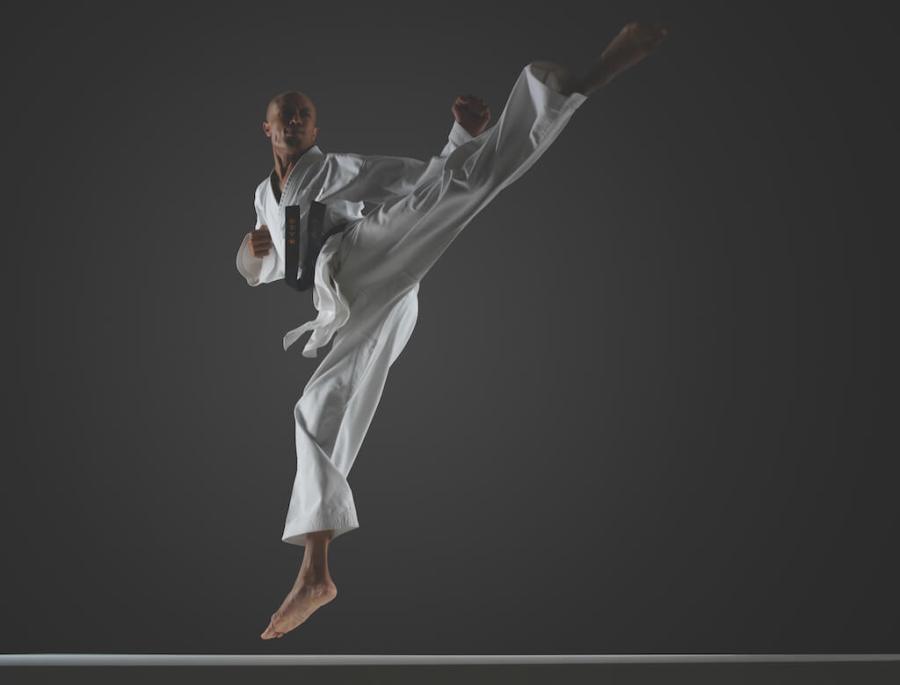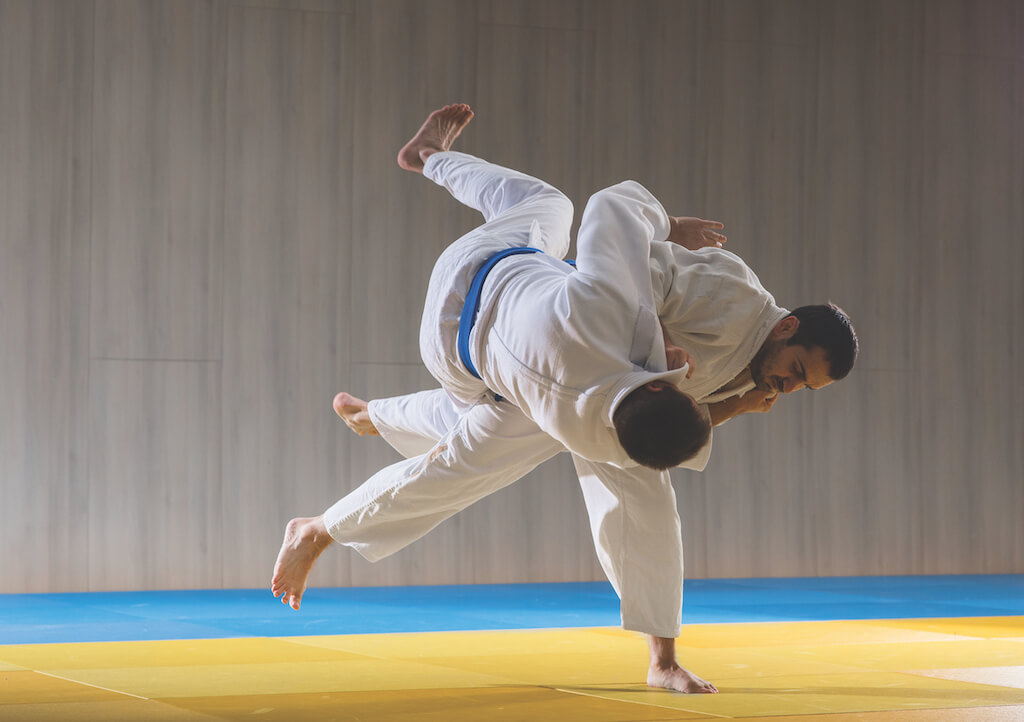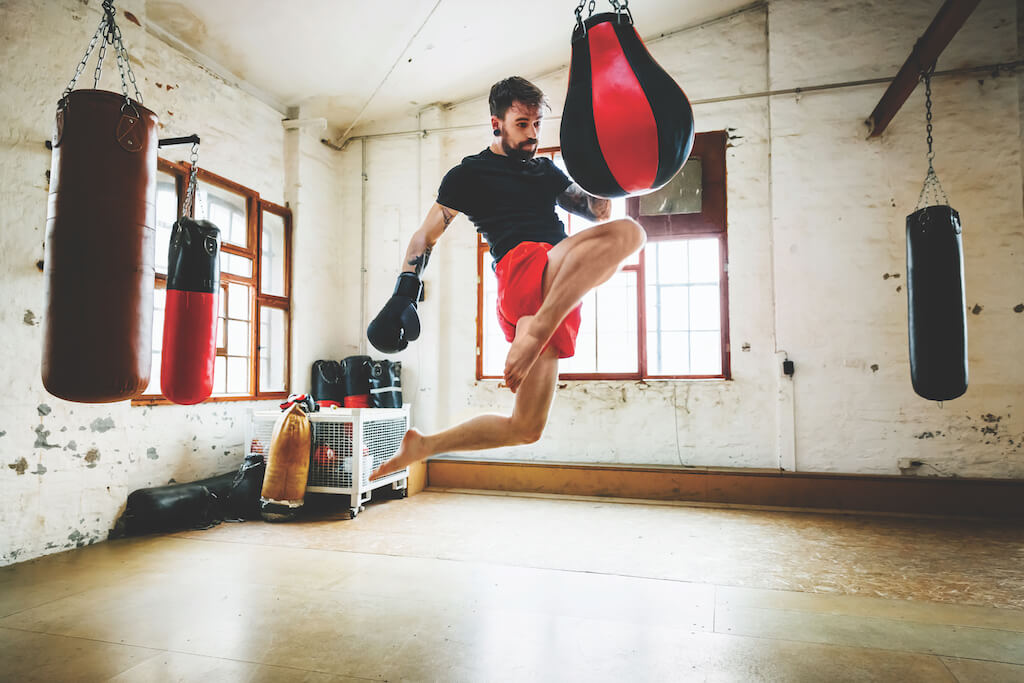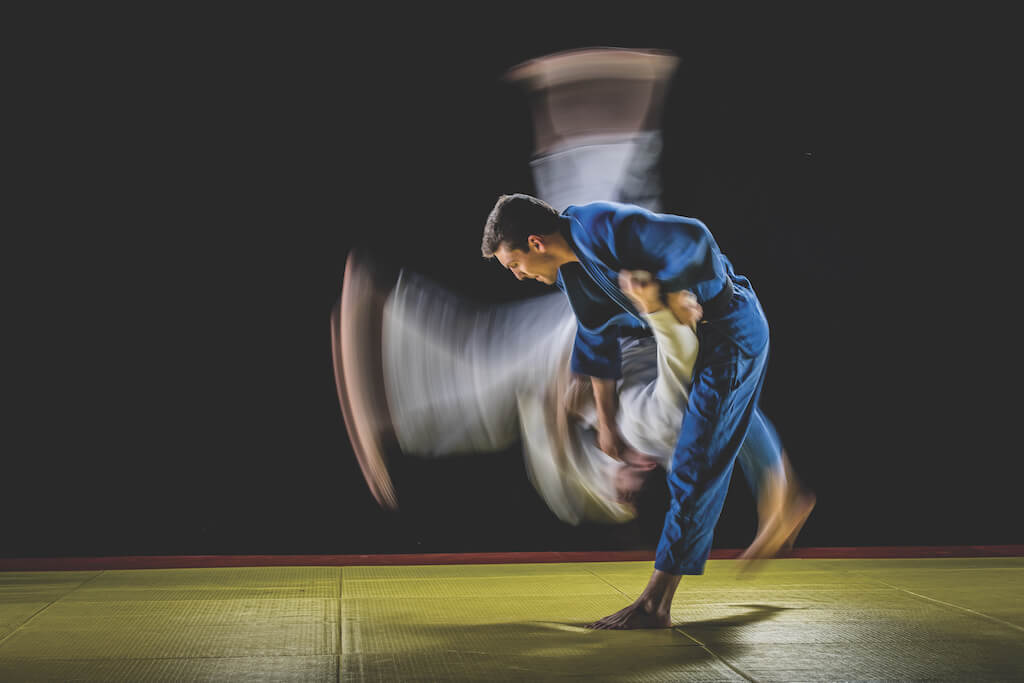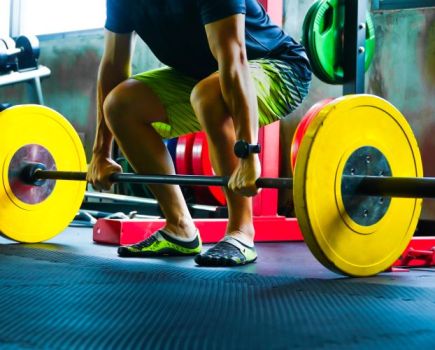Strength, flexibility, discipline and reflexes are just some of the benefits of martial arts training.
SELF-DEFENCE
Learning to protect yourself is about much more than just physically fighting back in a violent encounter. While that might sound like a useful reason to learn martial arts, a greater part of self-defence, says Giovanni Soffietto, founder of the British Martial Arts & Boxing Association (BMABA), is learning to interpret the body language of potential aggressors, along with situational awareness.
“Often a balanced measure of self-confidence, combined with personal restraint and self-discipline, will avoid the need to use any physical skills in the first place,” says Soffieto. “And if it does turn physical, practical martial arts training can provide life-saving breakaway techniques.”
MENTAL AGILITY
A 2018 study on the effects of martial arts on the alert index (response to unpredictable stimuli) found that those who regularly practised martial arts were significantly quicker than those who did not.
The martial artists, according to the research published in Frontiers in Psychology, triggered the production of norepinephrine, which activated the different parts of the brain involved in perceptual and motor processing.
FITNESS
A study published in the British Journal of Sports Medicine suggests martial arts practice can benefit just about every facet of your health and fitness.
The study compared fitness levels of Soo Bahk Do (similar to karate) practitioners with those of sedentary subjects, and significant differences were found. The Soo Bahk Do group displayed greater aerobic capacity, balance, flexibility, muscle endurance, strength and lower body fat than the sedentary controls.
NEW SKILLS
When you get into your 40s and 50s, it’s easy to think your learning days are over. But when you start a traditional martial art, you know nothing.
“It’s amazing how rewarding it is to learn a sequence of 14 movements, alternating between a punch and a block in a specific pattern,” says Luke Thompson, owner of Tunbridge Wells Taekwon-Do and former England coach.
“No matter how stressful your day job, it will seem a breeze compared to keeping your heels on the ground in a sitting stance, while performing a punch to the centre line and bringing your other hand back to the hip in one coordinated move.”
NEW PEOPLE
Nothing creates close bonds quite like kicking seven shades out of one another.
“You gain a great deal of respect for each other when you go toe-to-toe on the mats,” says Thompson. “When you go to a competition, you meet people from all over the world.
“After a while, you start seeing the same faces and after the competition you can put the battle behind you with a beer or two.”
FLEXIBILITY
Martial arts training involves all three types of flexibility: static, dynamic and ballistic.
“The warm-up and fitness elements,” explains Thompson, “include dynamic movements like squats and lunges, which develop flexibility through a full range of movement.
“Dynamic leg raises are used to increase the range under control. And the most advanced, ballistic stretching, is used to reach extreme ranges of motion at speed.
“Static stretching, usually saved for the end of your session, allows your muscles to relax while increasing flexibility and range of motion.”
TOUGHNESS
“Resilience is one of the greatest possessions of the human soul,” believes Soffietto. “It is one of the leading components in every achievement, big and small – from Olympic gold medals to the survival of horrific injuries. The human spirit’s ability to push on and adapt is breathtaking.
“Martial arts inherently and relentlessly instils resilience of both body and mind. The constant challenges faced while training, and the inner strength needed to overcome them, builds resilience of character and spirit like no other sport.”
PERSONAL GROWTH
Belts (or grades) are a measure of technical achievement, as well as personal development. There is no short cut and no instant gratification.
“Martial artists have to commit years of day-in, day-out training to obtain the coveted black belt,” says Soffietto, “which builds character and discipline.”
Dr Henry says similar: “Whatever level you are at in your martial arts journey, once you pass a milestone like a grading, you can look in the mirror and be proud of what you have achieved.”
CONFIDENCE
“Boosting confidence is central to martial arts, but it must be tempered by humility,” says Dr William Henry, black belt in karate – a discipline centred on the ethos ‘each one, teach one’.
“This way,” adds Dr Henry, “the student will not become over-confident, and will recognise and embrace the fact that they are part of a collective that is akin to a family.”
MEMORY
“Many martial arts are premised on this aspect of teaching and learning, because in training you are constantly challenged to think through, and therefore adapt to, different scenarios,” says Dr Henry.
“The movement patterns of your chosen martial art require you to understand every move you make, and why you have made it.”
Words: Michael Renouf

